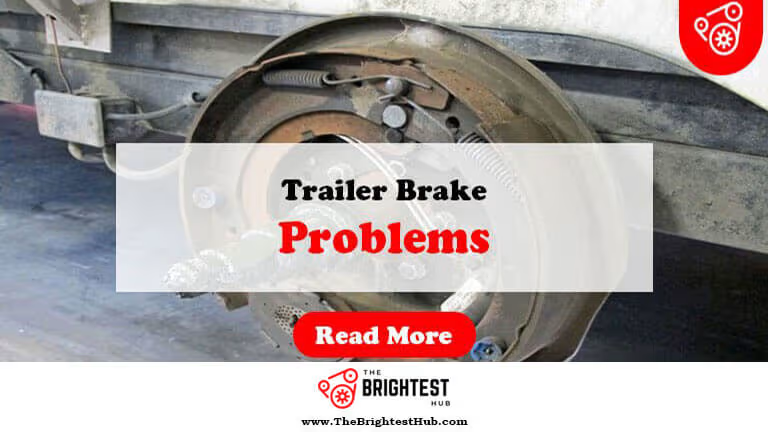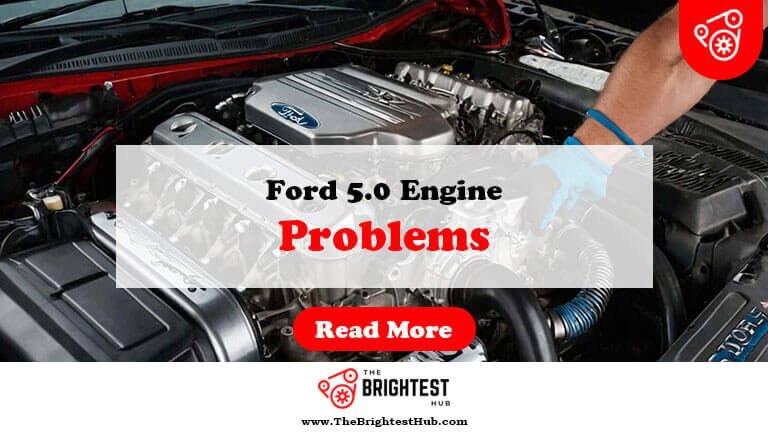Jeep Cherokee Transmission Problems: Quick Fixes & Tips
Jeep Cherokee owners often face transmission problems, including slipping, rough shifting, and unexpected delays. These issues can stem from low fluid levels, faulty sensors, or internal component failures.
The Jeep Cherokee is a popular SUV known for its rugged performance and versatility. Unfortunately, many drivers encounter transmission issues that can disrupt their driving experience. Common symptoms include difficulty shifting gears, a whining noise, or the engine revving without acceleration.
Understanding these problems is crucial for maintaining your vehicle’s reliability. Regular maintenance and timely repairs can help extend the life of your transmission and improve overall performance. This blog will explore common transmission issues in the Jeep Cherokee, their causes, and possible solutions, ensuring you stay informed and prepared.
Introduction To Jeep Cherokee Transmission Issues

The Jeep Cherokee is known for its ruggedness and versatility. However, transmission problems can disrupt its performance. Understanding these issues helps you maintain your Jeep’s reliability. Let’s explore common symptoms and the importance of transmission health.
Common Symptoms Of Transmission Problems
Recognizing transmission issues early can save you time and money. Here are key symptoms to watch for:
- Slipping Gears: The transmission unexpectedly changes gears.
- Delayed Shifting: Hesitation before the vehicle changes gears.
- Unusual Noises: Grinding or whining sounds during operation.
- Fluid Leaks: Puddles of red or brown fluid under your Jeep.
- Warning Lights: Transmission warning light illuminates on the dashboard.
Why Transmission Health Is Vital For Your Jeep
Transmission health directly impacts your Jeep’s performance and safety. Here are key reasons to prioritize it:
| Reason | Description |
|---|---|
| Performance: | A healthy transmission ensures smooth acceleration and deceleration. |
| Fuel Efficiency: | Proper functioning enhances fuel economy and reduces costs. |
| Safety: | Reliable transmission contributes to better control and handling. |
| Longevity: | Regular maintenance extends the life of your Jeep. |
Neglecting transmission issues can lead to costly repairs. Regular checks and maintenance are essential for a smooth driving experience.
Identifying Your Jeep Cherokee’s Transmission Type
Understanding your Jeep Cherokee’s transmission type is crucial for maintenance. It helps diagnose issues and ensures smooth driving. Two main types exist: automatic and manual. Knowing which one you have makes troubleshooting easier.
Automatic Vs. Manual: Knowing The Difference
Jeep Cherokees can have either an automatic or manual transmission. Each type operates differently.
- Automatic Transmission: Shifts gears automatically. Drivers focus on steering.
- Manual Transmission: Requires driver to shift gears. Offers more control over driving.
To identify your transmission type:
- Check the gear shift. Automatic has “P, R, N, D” letters.
- Manual has a stick with numbers (1, 2, 3).
The Specifics Of Jeep Cherokee Transmissions
Jeep Cherokees use various transmission models based on the year and trim. Here are some common types:
| Year | Transmission Type | Specifications |
|---|---|---|
| 2014-2020 | 9-Speed Automatic | Improved fuel efficiency and smooth shifting. |
| 2008-2013 | 5-Speed Automatic | Reliable but less efficient than newer models. |
| 1997-2001 | 4-Speed Automatic | Basic design, solid performance. |
Knowing these specifics helps in diagnosing transmission issues. Always refer to your owner’s manual for accurate information.
Most Reported Transmission Problems In Jeep Cherokees
The Jeep Cherokee has gained popularity for its ruggedness. However, many owners report transmission issues. These problems can impact performance and safety. Understanding these common issues can help you stay informed.
Gear Shifting Issues And Solutions
Gear shifting problems can frustrate Jeep Cherokee owners. They often experience:
- Difficulty shifting gears
- Unusual noises during shifting
- Delayed engagement
These symptoms may indicate a few underlying issues:
- Low Transmission Fluid: Check fluid levels regularly.
- Worn Clutch: Inspect and replace if necessary.
- Faulty Shift Linkage: Repair or replace damaged components.
Taking action promptly can prevent further damage and costly repairs.
Transmission Slipping: Causes And Fixes
Transmission slipping is another common problem. It can lead to loss of power and control. Owners often notice:
- Engine revs without acceleration
- Unexpected changes in speed
Here are the main causes of transmission slipping:
| Cause | Fix |
|---|---|
| Low or Dirty Fluid | Change or top off fluid. |
| Worn Gears | Replace damaged gears. |
| Faulty Solenoid | Inspect and replace as needed. |
Regular maintenance can help avoid slipping issues. Always consult a professional if problems persist.
Diy Troubleshooting Tips For Transmission Glitches
Transmission problems in a Jeep Cherokee can be frustrating. Knowing how to troubleshoot issues can save time and money. Here are some simple DIY tips to help you identify and fix common transmission glitches.
Checking Transmission Fluid Levels
Transmission fluid is vital for smooth operation. Low fluid levels can lead to shifting problems. Follow these steps to check your fluid levels:
- Park your Jeep on a flat surface.
- Start the engine and let it warm up.
- Shift through all gears, then back to ‘Park’.
- Locate the transmission dipstick.
- Remove the dipstick and wipe it clean.
- Reinsert the dipstick and pull it out again.
- Check fluid level against the markings.
Important: The fluid should be pinkish and clear. If it’s dark or smells burnt, consider replacing it.
Simple Transmission Maintenance Practices
Regular maintenance can prevent transmission issues. Here are some easy practices:
- Change transmission fluid every 30,000 miles.
- Inspect and replace transmission filters as needed.
- Check for leaks regularly under the vehicle.
- Ensure all connections are tight and secure.
Keep an eye on your driving habits. Avoid hard accelerations and sudden stops. These actions can strain the transmission.
| Maintenance Task | Frequency |
|---|---|
| Change Transmission Fluid | Every 30,000 miles |
| Inspect Transmission Filter | Every 15,000 miles |
| Check for Leaks | Monthly |
By following these tips, you can maintain your Jeep Cherokee’s transmission effectively. Stay proactive to avoid costly repairs later.
Professional Diagnostic Tools And Techniques
Jeep Cherokee transmission issues can be tricky. Using professional diagnostic tools helps identify the root cause. Accurate diagnostics save time and money during repairs. Understanding these tools is essential for effective troubleshooting.
Utilizing Obd-ii Scanners For Error Codes
OBD-II scanners are vital for diagnosing transmission problems. They read error codes from your vehicle’s computer. These codes point to specific issues in the transmission system.
- Quick Identification: Scanners provide immediate feedback.
- Comprehensive Data: They show various parameters affecting performance.
- Cost-Effective: Early detection can prevent costly repairs.
Common error codes related to the transmission include:
| Error Code | Description |
|---|---|
| P0700 | Transmission control system malfunction |
| P0720 | Output speed sensor fault |
| P0730 | Incorrect gear ratio |
The Role Of Professional Mechanics In Transmission Repair
Professional mechanics play a crucial role in transmission repair. They have the training and experience to fix complex issues. Their expertise ensures the transmission functions properly.
- Accurate Diagnostics: They interpret error codes and data.
- Advanced Tools: Mechanics use specialized equipment for repairs.
- Quality Assurance: Their work often comes with warranties.
Key benefits of hiring a professional include:
- Thorough inspections to find hidden problems.
- Efficient repairs that save time.
- Use of high-quality parts for better performance.
Relying on professional mechanics ensures your Jeep Cherokee runs smoothly.
Cost-effective Fixes For Transmission Hiccups
Transmission issues in Jeep Cherokees can be costly. Many owners seek budget-friendly solutions. Understanding options helps avoid expensive repairs.
When To Consider Rebuilding Over Replacing
Rebuilding a transmission can save money. Consider this option when:
- The transmission is worn but not severely damaged.
- Parts are available and affordable.
- You want a reliable solution without the high cost of a new unit.
Rebuilding can extend the life of your Jeep. Choose this if:
- The vehicle is well-maintained.
- You plan to keep it for several more years.
- You want to retain the original transmission.
Finding Affordable Parts For Your Jeep Cherokee
Finding cost-effective parts is key. Here are some tips:
- Check local junkyards for used parts.
- Search online marketplaces for discounts.
- Consider certified aftermarket parts.
Compare prices across different suppliers. Use the table below for a quick guide:
| Source | Type of Parts | Estimated Cost |
|---|---|---|
| Local Junkyard | Used Parts | $50 – $200 |
| Online Marketplace | New Parts | $100 – $300 |
| Aftermarket Suppliers | Aftermarket Parts | $75 – $250 |
Always check reviews before buying parts. Quality matters for performance and longevity. Saving money on parts is great, but ensure they fit well.
Preventive Measures To Extend Transmission Life
Maintaining your Jeep Cherokee’s transmission is essential for its longevity. Regular care can help prevent costly repairs. Below are effective preventive measures to extend your transmission life.
Routine Check-ups And Service Schedules
Establish a routine for checking your transmission. Follow the service schedule recommended in your owner’s manual. Regular maintenance includes:
- Fluid Checks: Check transmission fluid levels monthly.
- Fluid Changes: Change transmission fluid every 30,000 to 60,000 miles.
- Filter Replacements: Replace the transmission filter during fluid changes.
Keep an eye on any signs of leaks. Addressing leaks early can prevent major problems.
Driving Habits That Protect Your Transmission
Your driving style impacts transmission health. Implement these driving habits:
- Avoid Rapid Acceleration: Gradual acceleration reduces strain.
- Limit Towing Weight: Do not exceed the recommended towing capacity.
- Use the Right Gear: Shift gears correctly for different terrains.
- Let Your Jeep Warm Up: Allow the engine to warm before driving.
Practice these habits to enhance your transmission’s performance. A little care goes a long way.
When To Seek Professional Help
Transmission issues can be complex. Understanding when to call a professional is crucial. Some problems may seem minor but can lead to larger issues. Recognizing these signs can save time and money.
Recognizing The Limits Of Home Repairs
Many Jeep Cherokee owners try DIY fixes. Some repairs are simple, like:
- Replacing transmission fluid
- Checking the transmission filter
- Inspecting fluid leaks
Yet, certain symptoms require expert help:
- Slipping Gears: If the car jumps between gears.
- Unusual Noises: Grinding or clunking sounds while shifting.
- Dashboard Warning Lights: Check engine or transmission lights.
Ignoring these signs can worsen the issue. Delaying repairs may lead to costly damage.
Selecting The Right Repair Shop For Your Transmission
Finding a trustworthy repair shop is essential. Consider these factors:
- Experience: Look for shops specializing in transmissions.
- Reviews: Check online ratings and customer feedback.
- Certifications: Ensure mechanics have proper qualifications.
- Warranty: A good shop offers warranties on repairs.
It’s beneficial to ask for estimates before starting repairs. This helps to avoid surprises.
Choosing the right shop will ensure your Jeep Cherokee gets proper care. A reliable mechanic can extend the life of your vehicle.
Recalls And Manufacturer Support For Jeep Cherokee
The Jeep Cherokee has faced various transmission problems over the years. These issues have led to recalls and manufacturer support efforts. Understanding these aspects helps owners stay informed and safe on the road.
Navigating Through Recall Processes
Owners must know how to navigate recalls effectively. Here are the steps:
- Check the VIN (Vehicle Identification Number) online.
- Visit the official Jeep website for recall information.
- Contact your local Jeep dealership for assistance.
- Schedule an appointment for any necessary repairs.
Keep an eye on your mail for recall notices. These notices provide important details about any transmission issues. Prompt attention to these notices is crucial for safety.
Warranty And Support Options For Owners
Jeep offers various warranty and support options for Cherokee owners. Here are the main points to consider:
| Warranty Type | Coverage Duration | Details |
|---|---|---|
| Basic Limited Warranty | 3 years/36,000 miles | Covers most vehicle repairs. |
| Powertrain Warranty | 5 years/60,000 miles | Covers engine and transmission issues. |
| Roadside Assistance | 5 years/60,000 miles | 24/7 help for breakdowns. |
Jeep provides reliable support for transmission problems. Owners can call customer service for guidance. Many dealerships offer complimentary inspections for recall-related issues.
Stay informed about your vehicle. Regular maintenance can help prevent future problems. Always read your owner’s manual for specific guidelines.
Conclusion: Ensuring A Smooth Ride Ahead
Jeep Cherokee owners must prioritize transmission health. Transmission issues can lead to costly repairs and unsafe driving. Understanding common problems helps in prevention and maintenance.
Key Takeaways For Jeep Cherokee Owners
- Regular Maintenance: Follow the service schedule in your manual.
- Check Fluid Levels: Ensure transmission fluid is at optimal levels.
- Watch for Signs: Be alert for slipping gears or strange noises.
- Diagnostic Checks: Use a professional service for regular diagnostics.
- Use Quality Parts: Choose OEM parts for replacements.
Staying Informed On Transmission Health
Staying informed about transmission health is crucial. Knowledge empowers you to act quickly. Here are some tips:
- Read your owner’s manual.
- Join online forums or groups for Jeep owners.
- Consult with certified mechanics.
- Watch videos on Jeep maintenance.
Understanding your Jeep Cherokee’s transmission can ensure a smooth ride. Regular checks and maintenance can save money and time. Stay proactive to enjoy every journey.
Frequently Asked Questions
What Are Common Jeep Cherokee Transmission Issues?
Common issues include slipping gears, harsh shifting, and unexpected delays when accelerating.
How To Identify Transmission Problems In A Jeep Cherokee?
Signs include warning lights, strange noises, or difficulty shifting gears while driving.
What Is The Cost To Fix Jeep Cherokee Transmission?
Repair costs typically range from $1,500 to $3,000, depending on the severity of the issue.
Can I Drive With Transmission Problems?
Driving with transmission issues can worsen damage and compromise safety. It’s best to seek repairs immediately.
How To Prevent Transmission Problems In Jeep Cherokee?
Regular maintenance, fluid checks, and timely servicing can help prevent transmission issues.
Conclusion
Transmission problems in the Jeep Cherokee can lead to significant frustrations. Regular maintenance and prompt diagnosis are crucial. If you notice any unusual signs, consult a professional mechanic immediately. Staying informed about potential issues can save you time and money.
Protect your investment by addressing transmission concerns early.






